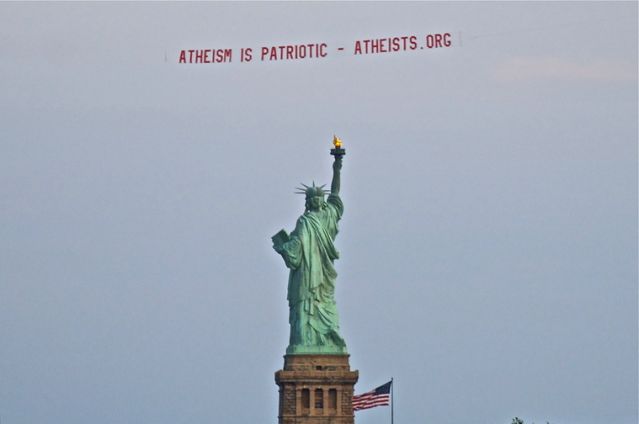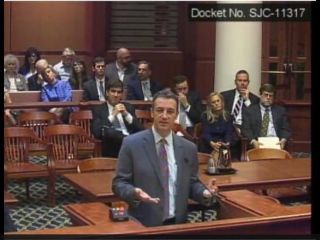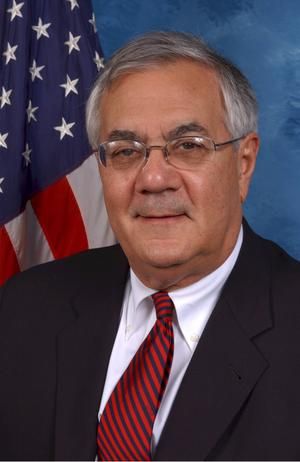Religion
Why Should Open Atheism Preclude Elected Office?
Even visible secular activism shouldn't hinder a candidacy .
Posted September 14, 2013

Probably because my writing and activities frequently involve taking stands on issues of public policy, from time to time I am asked whether I would consider running for political office. Such inquiries provide me with an opportunity to get a good laugh, because I usually respond with something like this:
“I’m not so sure I have the ideal resume for elected office. I currently serve as president of a group that advocates for atheists (the Secular Coalition for America). Before that, I served two terms as president of another atheist-humanist advocacy group (the American Humanist Association). Moreover, I've also written a book called Nonbeliever Nation. And to top it all off, I’m lead counsel in a lawsuit that challenges the ‘under God’ wording of the Pledge of Allegiance!”
My questioner usually gets my point quickly, and is already laughing before I cap off this statement with a question of my own: “Does that look like the resume of a viable candidate for election?”
After we both enjoy this little chuckle, we’ll move the conversation toward more realistic topics.
As I relayed this story to one young person recently, however, I received a different response. She smiled slightly, but then her face immediately became serious again and she asked another question: “Why should any of those things disqualify you from running for office?”
I could see that her question was sincere, that she wanted an answer. Forced to consider it, I realized that I had never taken the analysis beyond the joking stage. Indeed, why should a person be seen as unfit for elected office merely because he or she has advocated visibly on behalf of the secular demographic?
Objectively speaking, it’s not as if atheists are an embarrassing segment of society, some strange cult with bizarre beliefs and rituals. Over ninety percent of the National Academy of Sciences holds atheist or agnostic views—is this a source of shame? Social problems do not correlate to secular individuals or societies, and in fact they often correlate negatively (with lower rates among secular populations)—so why should advocacy on behalf of seculars disqualify anyone from office?
It's noteworthy that most atheist activism has little to do with trying to dispel other religious beliefs, but instead merely seeks to push back against anti-atheist prejudice and to oppose the intrusion of religion into government. It's hard to see why this would be political poison. Advocacy on behalf of racial minorities, women, or gays and lesbians would never disqualify a candidacy, but for some reason we seem to see it as toxic in the context of secular advocacy.

Should atheist advocacy hinder a candidacy?
It occurred to me that even I—one who is deeply immersed in the culture wars—carry around outdated assumptions about atheism and politics. My new friend, perhaps lacking the baggage of old-fashioned thinking, could see the issue more clearly. Even the perceived political blasphemy of challenging the Pledge of Allegiance is, in the final analysis, an act in defense of patriotism, not a rejection of it. After all, is there something unpatriotic about wanting your nation's patriotic exercise to be inclusive of all good citizens? Shouldn’t any patriotic exercise—especially one conducted daily in public schools for purposes of defining patriotism and loyalty for children—be nondiscriminatory?
If voters can’t see that seculars deserve respect—if they would reject an open atheist candidate merely because they perceive the secular demographic as being that undesirable—then surely we need a public discussion of these issues. It is troubling, for example, that a respected member of Congress such as Barney Frank could only come out as an atheist after leaving office, even though he had come out as gay three decades ago!

Frank: Finally out of closet
For the voting public to reject an atheist candidate outright, even one who ardently advocates on behalf of the seculars, is nothing less than bigoted. Moreover, if we're wondering why rational and progressive public policy is so sadly lacking in this country, one could wonder whether it has something to do with the lack of openly atheist and agnostic elected officials. The willingness to accept secular candidates can be seen as a sign of an enlightened, intelligent electorate, just as the irrational bias against them says the opposite. This is especially true when we consider that candidates routinely get elected in much of the country while proudly rejecting science and proclaiming a belief that the world is only a few thousand years old. In other words, voters get the public policy they deserve.
Just for the record, this shouldn’t be construed as a declaration of my candidacy for any office, but it certainly has caused me to rethink my punch line. Maybe my resume isn’t such a disqualifier after all?
Nonbeliever Nation: The Rise of Secular Americans, is available here.




